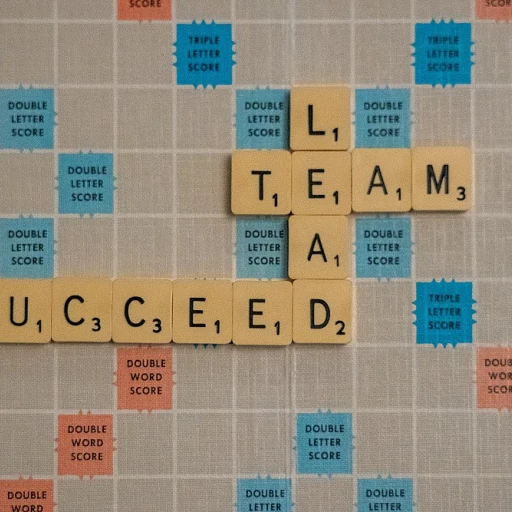
The Importance of Math in Welding
The Critical Role of Mathematics in the Welding Industry
Mathematics is an indispensable part of the welding industry, serving as a fundamental tool that enables precision and accuracy in welding processes. For welders, developing strong math skills is not just a requirement but a key to ensuring successful outcomes, especially when handling complex tasks that require a deep understanding of measurements and calculations. Math skills in welding go beyond the basics. They encompass everything from understanding fractions and decimals to mastering the metric system. These skills are essential for interpreting blueprints and performing accurate calculations related to lengths, areas, and volumes. This foundational knowledge directly influences the quality of welds produced. Welders frequently come across practical problems that demand the application of mathematics. For instance, they may need to manipulate mixed numbers or work with improper fractions during their day-to-day tasks. These operations are crucial in adjusting materials to precise dimensions or determining the appropriate weld bead size. In the United States, the importance of math in welding is recognized across various sectors. Welding math concepts play a significant role in managing aspects such as heat transfer rates and material expansion. These practical applications of math help prevent structural weaknesses and ensure the longevity of welded joints. The commercial viability of the welding industry is often linked to the proficiency of welders in mathematics. By fostering a culture of continuous learning and skill enhancement, both students and professionals can tackle challenges efficiently. This opens window of opportunity for innovation and improvement in welding methodologies. Understanding and mastering mathematical concepts in welding not only improves precision but also enhances a welder's ability to contribute effectively to projects. This underscores the continuing education that math welders must pursue to stay competitive and relevant in the industry.Basic Mathematical Concepts for Welders
Essential Math Concepts for Aspiring Welders
For those stepping into the welding industry, a solid grasp of basic math is crucial. Welders often encounter situations where they need to apply mathematical concepts to solve practical problems. Understanding fractions, decimals, and basic geometry can significantly enhance a welder's ability to perform precise work.
Fractions and Decimals: The Building Blocks
Fractions and decimals are fundamental in welding math. Welders frequently work with measurements that require converting between fractions and decimals. For instance, understanding how to convert common fractions into decimal numbers is essential when interpreting blueprints or making precise cuts. This skill is not only vital for accuracy but also for ensuring safety and quality in welding projects.
Geometry in Welding
Geometry plays a significant role in welding, particularly when dealing with shapes and volumes. Welders must understand geometric terms and concepts to calculate angles, lengths, and areas. This knowledge helps in creating accurate welds and ensuring that components fit together as intended. Geometry also aids in visualizing the final product, which is crucial for planning and executing welding tasks effectively.
Basic Arithmetic: Multiplication and Division
Basic arithmetic skills, such as multiplication and division, are indispensable for welders. These operations are often used to calculate material requirements, costs, and other project-related numbers. For example, determining the total volume of materials needed for a project involves multiplying dimensions, while dividing helps in distributing resources evenly across tasks.
For those looking to enhance their math skills, continuing education and practice are key. Many educational resources and tools are available to help students and professionals alike improve their understanding of math in welding. By mastering these basic concepts, welders can better navigate the challenges of the industry and excel in their careers.
Practical Applications of Math in Welding
Bridging Mathematical Theory to Welding Practices
In the world of welding, math isn’t just an abstract concept; it’s a practical skill essential for the trade. When welders approach projects, they're often faced with practical problems that require a strong understanding of various mathematical principles. These principles go beyond the basics of geometry and encompass a range of math skills that include fractions, decimals, and unit conversions.
A typical welding project might involve the calculation of material volume, requiring precise division and multiplication of numbers to ensure accuracy. Another frequent task is working with fractions and decimal numbers to measure parts correctly, whether it's using improper fractions or converting fractions to decimals. This math competency is essential in the welding industry and aids in maintaining quality and safety standards.
For instance, when welders are fabricating metal structures, they utilize geometry for cutting and fitting parts. Understanding the relationships between different shapes and their measurements is crucial—this knowledge helps in executing precise cuts and aligns with industry standards.
Additionally, measurement systems like the metric system are used globally, and understanding these standards is vital for international projects. Welders must navigate between various systems and units—translating them efficiently to maintain consistency in their work.
Ultimately, these mathematical applications can be daunting for students entering the field. Engaging in continuing education and practice can significantly enhance their welding math capabilities. Regular exposure to arithmetic operations, including fractions, mixed numbers, and decimals, opens a window of opportunity for solving welding math problems with greater ease.
Advanced Math Skills for Specialized Welding
Mastering Complex Numeric Skills in Welding
In the field of welding, advanced math skills are indispensable for those looking to specialize in more intricate tasks. While basic mathematical concepts lay the foundation, progressing to more challenging calculations opens up varied opportunities in the industry. Here’s how complex math enhances welding capabilities. Understanding geometry becomes crucial for welders performing precision work. This involves calculating angles and volumes accurately. Geometry is often combined with other math techniques to address practical problems, such as ensuring precisely aligned welds. Advanced math also involves working with improper fractions and mixed numbers. These concepts are essential for converting and understanding measurements, especially when dealing with the different unit systems such as the metric system prevalent in many global industries. Converting between fractions, decimals, and mixed numbers is a fundamental skill that math welders must master. Furthermore, the use of decimals is frequent in specialized welding tasks. The ability to perform multiplication and division with decimals ensures the exactness required in high-stakes projects. Understanding decimal numbers impacts everything from material specifications to project calculations. For welders aiming to improve their proficiency, the welding industry offers a variety of continuing education opportunities. These courses often highlight complex math skills, necessary for tackling more sophisticated jobs. These programs support students in navigating through the challenges of advanced mathematics while also incorporating practical exercises. They provide a structured introduction to complex problem-solving techniques crucial for achieving exact results. In essence, the industry's mixed requirements demand a firm grasp of advanced math skills. Welding professionals adept with numbers and geometry stand out as they bring both precision and efficiency, contributing significantly to project success.Tools and Resources for Improving Math Skills
Enhancing Your Math Capabilities in Welding
To thrive in the welding industry, welders need to effectively harness math skills. Although the fundamental principles of geometry, fractions, and decimals play a significant role, there are useful tools and resources available to help welders, students, and professionals alike develop their competencies.
There are textbooks and online courses specifically tailored for math welding. These often provide a comprehensive introduction to basic math concepts and practical applications within the welding industry. For instance, books published with an ISBN offer a structured approach to learning, including practice problems that cover unit conversion, volume calculations, multiplication, and division skills relevant to welding tasks.
- Online Courses and Tutorials: Platforms offer targeted modules on common fractions, mixed numbers, improper fractions, and how to work with fractions and decimals. Such courses help bridge the gap between theoretical knowledge and practical industry requirements.
- Study Resources: Search for guides that encompass fractions mixed, geometry terms, and basic math drills. These resources are designed to assist individuals in mastering practical problems encountered in real-world welding scenarios.
- Continuing Education Programs: Many vocational schools and community colleges in the United States provide continuing education courses focusing on improving math welders' proficiency. A focus on areas like the metric system can be particularly beneficial for those working in diverse geographical markets.
- Practice Software: Some apps simulate welding environments, requiring the user to make calculations using both student-level and industry-level math.
Overcoming challenges in mastering welding math requires dedication and use of diverse educational tools. As welders engage with these resources, they open windows to improved job performance and career advancement, thus enhancing their overall productivity and efficiency in the field.













